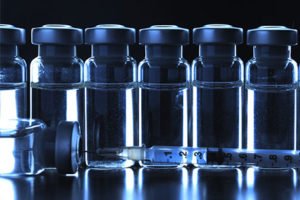Genotropin normalizes the concentration of growth factors related to insulin and stimulates growth in users. The use of Genotropin for the treatment of growth hormone deficiencies also results in enhanced lean body mass, decreased fat mass, and metabolic changes that benefit lipid metabolism. Genotropin is known to deliver the following results in addition to the aforementioned ones.
Benefits of Genotropin
Pediatric patients who suffer from human growth hormone deficiency can use the HGH to stimulate the growth of their skeletal system. Pediatric patients with a short stature have a shortage of endogenous growth hormone and a lower number of skeletal muscle cells in comparison with regular pediatric patients.
The use of Genotropin injections increases the size as well as the number of skeletal muscle cells in short-statured individuals. The enhanced synthesis of cellular protein facilitates linear growth and Genotropin promotes protein metabolism as well. Treatment with the HGH retains nitrogen in the user’s body by reducing serum urea nitrogen and urinary excretion of nitrogen.
Pediatric patients who have hypopituitarism are known to experience low levels of blood glucose that can be improved by using Genotropin as a treatment measure. Glucose tolerance may be impaired by taking large doses of the HGH. Patients who suffer from growth hormone deficiencies can use Genotropin to stimulate lipid metabolism, increase the levels of plasma fatty acids and decrease body fat. Inorganic phosphate or serum concentrations also increase in people with growth hormone deficiencies after treatment with Genotropin. Although it doesn’t significantly alter serum calcium, the HGH can increase calciuria.
For a free consultation, call (305) 682-1818
Genotropin Usage
Genotropin is often prescribed to help pediatric patients with growth hormone deficiencies as a long-term treatment measure. Individuals who have inadequate endogenous growth hormone secretions may use the HGH, but it must not be used for the treatment of any other reason that causes short stature. An appropriate stimulation test of growth hormones is essential before confirming the prescription of Genotropin.
Side Effects Caused by the Intake of Genotropin
While Genotropin has its positive aspects, it also causes adverse reactions like most other medications. Some of the common side effects of Genotropin use include nausea, headache, fatigue, weakness, muscle pain, and vomiting. It is crucial to promptly inform your pharmacist or doctor following the continual experience of these symptoms. Patients must always keep in mind that the HGH was prescribed by a doctor because the benefits were adjudged to be greater than the potential side effects.
The severe side effects caused by the use of Genotropin include persistent fatigue, development of limp, unexplained and unusual weight gain, fast heartbeat, persistent slow rate of breathing, persistent intolerance towards cold, itching sensation or pain in the ears, hearing problem, pain in the knee, joints or hip, tingling sensation and numbness, unusual thirst, unusual urination patterns, inflammation of feet, ankles or hands, severe headache, severe abdominal or stomach pain, persistent vomiting or nausea, changes or problems in vision, seizures, etc. A large number of users say that side effects are seldom severe.
Adverse Reactions in Children
Although rare, some of the possibly fatal problems in breathing may be experienced by children who have Prader-Willi Syndrome. Children who are severely overweight or those who have problems such as lung infections, sleep apnea, or lung diseases are at higher risk of encountering fatal problems. Children are required to carry out breathing tests, before as well as during the treatment, to ensure that risks can be reduced. Trouble in breathing, or persistent coughing are signs that must be taken seriously when children use the Genotropin Human Growth Hormone for the treatment of growth hormone deficiency.
Call or text (305) 682-1818 or complete a Free Consultation Form








